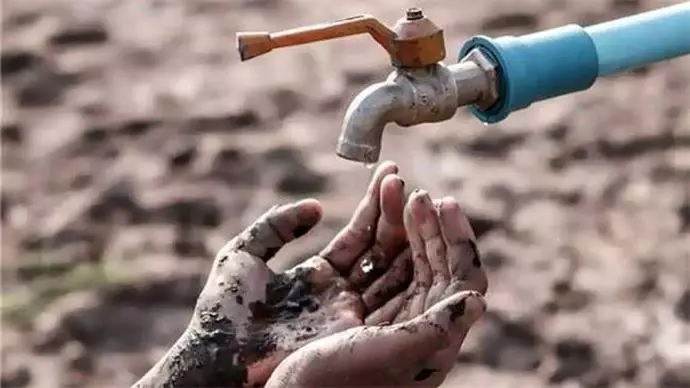NATIONAL: South India is currently grappling with an imminent water crisis as reservoir levels have plummeted to a precarious 17%. This alarming situation has raised widespread concerns about the availability of water for millions of people, agriculture, and industries in the region.
The dwindling reservoir levels are primarily attributed to inadequate rainfall during the monsoon seasons, coupled with inefficient water management practices. South India heavily relies on reservoirs for water supply, making the situation even more critical as the demand continues to rise.
The ramifications of this water crisis are manifold. Farmers, who form the backbone of South India’s economy, are facing severe challenges as their irrigation needs cannot be met adequately. It can lead to crop failures and loss of livelihoods and ultimately exacerbate rural poverty.
Urban areas are also feeling the strain of water scarcity. Residents are experiencing erratic water supply schedules, with some areas facing outright shortages. It not only disrupts daily life but also poses significant health risks, as access to clean water for drinking and sanitation becomes compromised.
Industries reliant on water for their operations are being forced to curtail production or seek alternative water sources, leading to economic setbacks and potential job losses. Moreover, the tourism sector, which contributes significantly to the region’s economy, could suffer as scenic attractions lose their allure due to parched landscapes.
In response to this crisis, government authorities and civic bodies are implementing various measures to mitigate the impact. These include water conservation campaigns, promoting rainwater harvesting techniques, and enforcing stricter regulations on water usage.
However, addressing the root causes of the water crisis requires a multifaceted approach. Investments in infrastructure for water storage and distribution, modernization of irrigation systems, and adoption of sustainable agricultural practices are crucial for long-term solutions.
Furthermore, raising awareness among the public about the importance of water conservation and encouraging behavioral changes is paramount. Individual efforts such as reducing water wastage at home and embracing water-saving technologies can collectively make a significant difference.
Collaboration between government agencies, local communities, and stakeholders is essential to tackle the water crisis in South India. Only through concerted action and proactive measures can the region hope to overcome this pressing challenge and secure a sustainable water future for generations to come.

